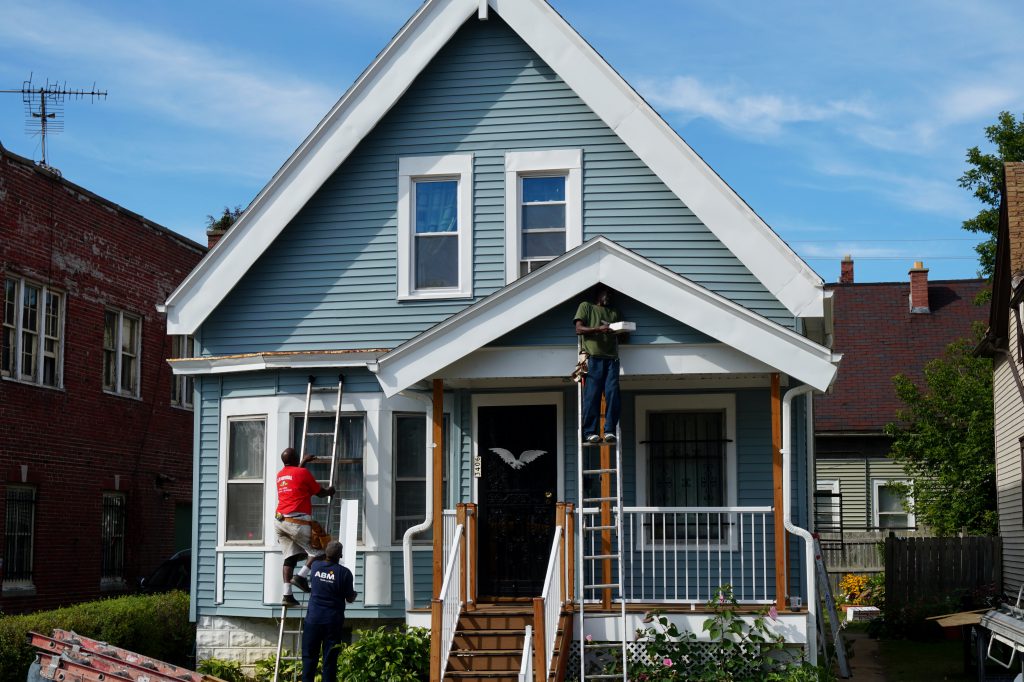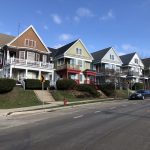Good Signs on Affordable Housing
Activist groups creating programs, politicians embracing change. Can we build on this momentum?
What’s the first thing that comes to mind when you think of Milwaukee? Beer? Brats? Baseball? Low rates of homeownership?
The first three are traditions worth keeping, recalling the history, food and sport that bind our community. Regrettably, the fourth is just as much a part of our region’s reality. Only it divides: rich from poor, black from white, owner from renter.
Owning a home offers stability and sustainability. Renters may not know where they will live from year to year; ownership delivers permanence. Tenants can’t control rising rents; a fixed-rate mortgage stabilizes monthly housing expenses.
Homeownership builds both wealth and community, too. Homeowners enjoy a median net worth 44 times the wealth of renters ($230,000 vs. $5,200), says the Federal Reserve Board, much of that tied to the equity in their homes. Owners are more engaged in schools, youth activities and civic organizations because they hold a stake in their neighborhoods.
Nationwide, 64% of Americans own their homes. In Milwaukee, merely 52% do. And the challenges are substantially greater for lower-income households and people of color. The differences are as plain as black and white – literally.
Black homeownership rates in the U.S. have trended downward since last decade’s housing crash. This past quarter, they fell to 40.6% – below the rate when the Fair Housing Act was enacted in 1968. But that bleak rate is downright rosy when contrasted with Milwaukee’s black homeownership rate of 29%. There is a gap of 40 percentage points between white and black homeownership in Milwaukee, according to a 2018 report of the Washington-based Urban Institute, a figure exceeded by just eight other metro areas in the country.
We can’t blame the cost of housing here. We are one of the most affordable big cities in the nation. The average house costs $139,900, the fifth lowest of metro areas and 38% lower than the U.S. average, according to the firm RealtyHop
The problem isn’t cost, it is lack of supply. It is a scarcity that Milwaukee shares with much of the country. Just seven new homes are being built in the U.S. for every 10 newly formed households, leaving us with a shortage of homes totaling in the millions.
In our region, new-home production for the first half of 2019 is just 85% of what it was a year ago and lower than any year since 2015, according to MTD Marketing Services of Wisconsin. While new home construction is generally not targeted at the so-called affordable market (the average price of new homes exceeds $384,000), it creates move-up opportunities for existing homeowners, making their houses available for entry-level buyers.
Home construction is a task made more difficult by costly building regulations, burdensome land-use ordinances and tight underwriting for borrowers.
But amid the despair, there is reason to hope that better days are ahead.
Locally, Take Root Milwaukee, a 9-year old consortium of more than 40 organizations, is making important contributions to affordable and sustainable homeownership through buyer education and other low-cost services.
Nationally, the Affordable Homeownership Coalition is advocating to change laws, regulations and business practices that block new construction or artificially reduce the number of borrowers who can qualify for home mortgages. The coalition is a bi-partisan alliance of home builders, lenders, real estate professionals, community development organizations and civil rights groups united by their common resolve to increase homeownership to meet America’s housing and financial needs.
Somewhat stunningly, politicians of both parties now agree on the need for more homeownership.
This spring, a congressional committee conducted an extensive examination into obstacles and solutions related to minority homeownership; both the House and Senate passed bills cutting FHA insurance premiums for borrowers who undergo homeownership counseling; and the Federal Housing Finance Agency recently authorized the use of alternative credit scoring models, which could markedly increase the number of borrowers who can be considered for home loans.
The Trump administration got into the act this summer by creating a multi-agency council tasked with eliminating regulatory barriers to affordable housing.
Now, local and state leaders must follow suit and advance new policies to encourage, ease and speed the construction of new homes. We can’t afford to squander this new-found momentum for affordable homeownership that holds the promise of transforming our community’s economic and social well-being one family at a time.
Bethany Sanchez is the senior administrator of the Fair Lending Program of the Metropolitan Milwaukee Fair Housing Council.
This story was originally published by Milwaukee Neighborhood News Service, where you can find other stories reporting on fifteen city neighborhoods in Milwaukee.
Op-Ed
-
Wisconsin Candidates Decry Money in Politics, Plan to Raise Tons of It
 Dec 15th, 2025 by Ruth Conniff
Dec 15th, 2025 by Ruth Conniff
-
Trump Left Contraceptives to Rot; Women Pay the Price
 Dec 8th, 2025 by Dr. Shefaali Sharma
Dec 8th, 2025 by Dr. Shefaali Sharma
-
Why the Common Council’s Amended Budget is Good Policy for Milwaukee
 Nov 20th, 2025 by Alds. Marina Dimitrijevic and Russell W. Stamper, II
Nov 20th, 2025 by Alds. Marina Dimitrijevic and Russell W. Stamper, II






















